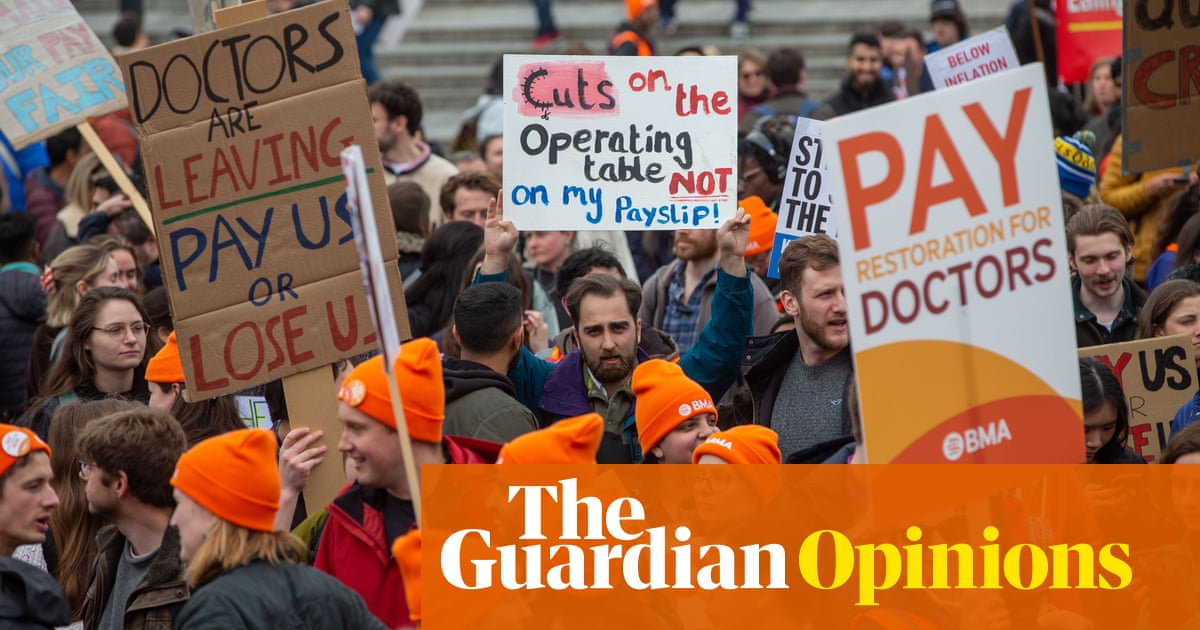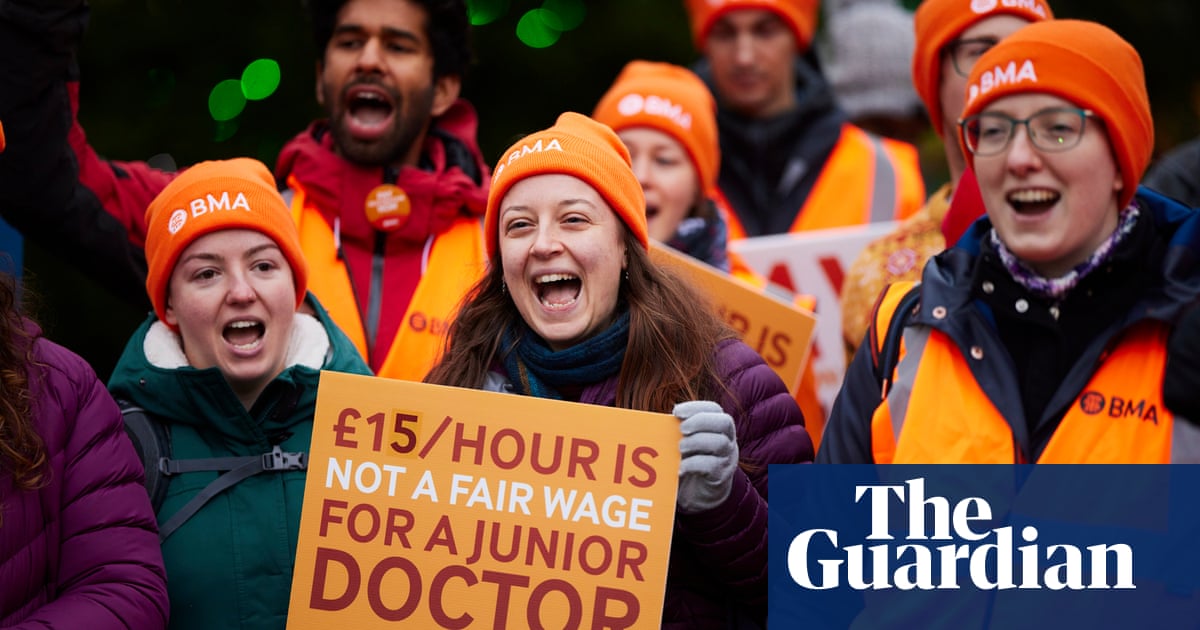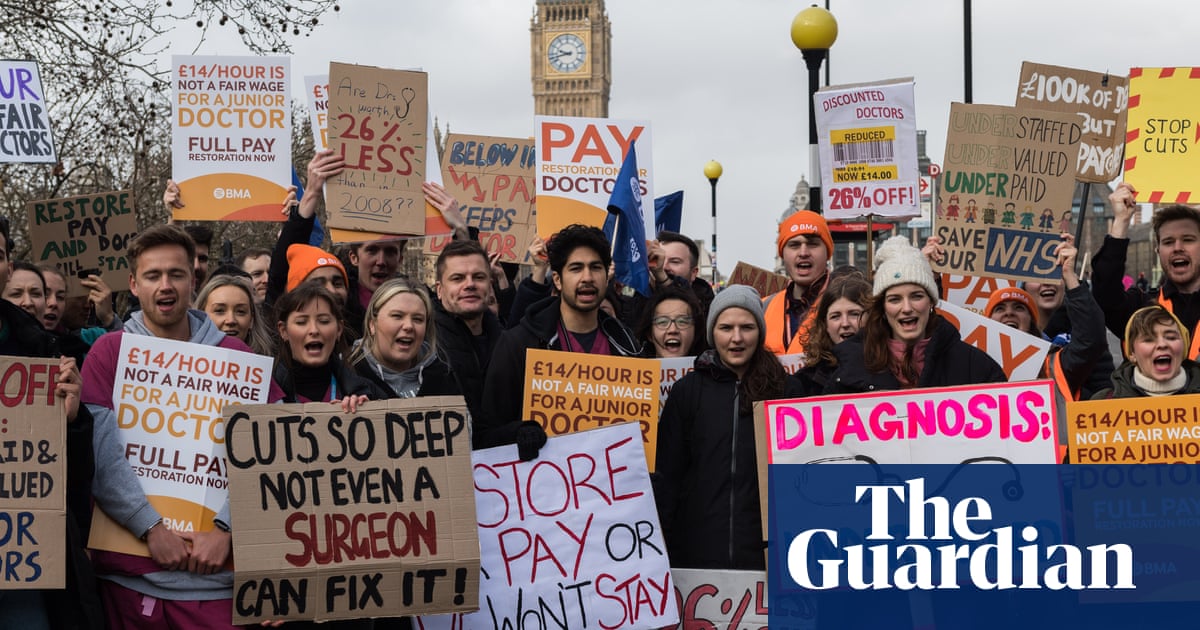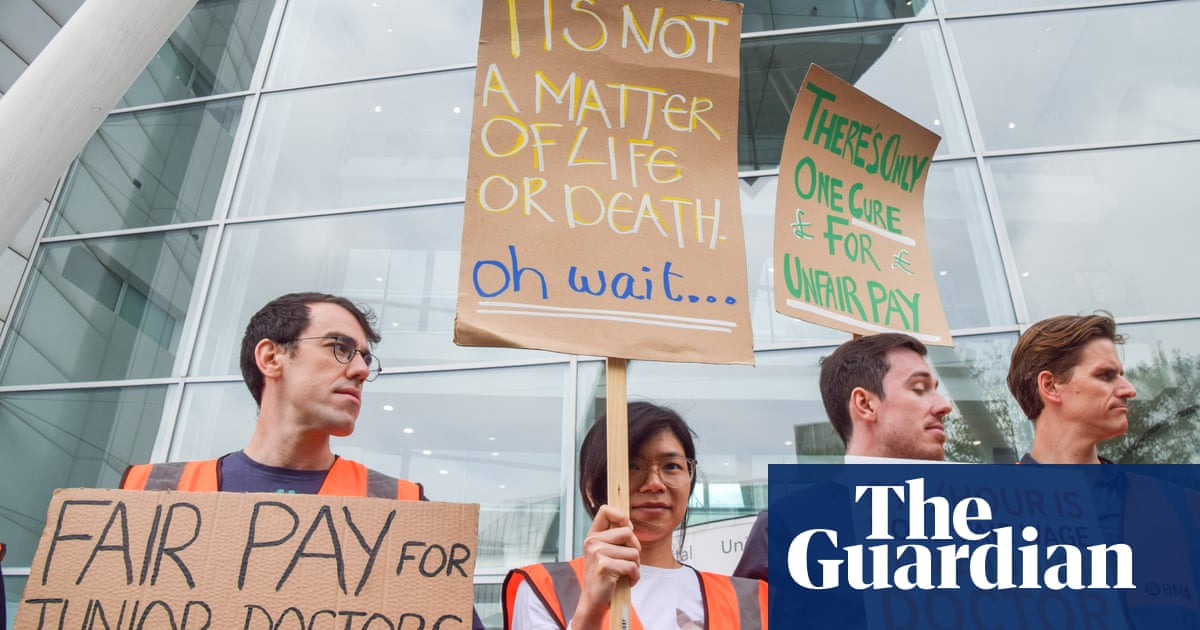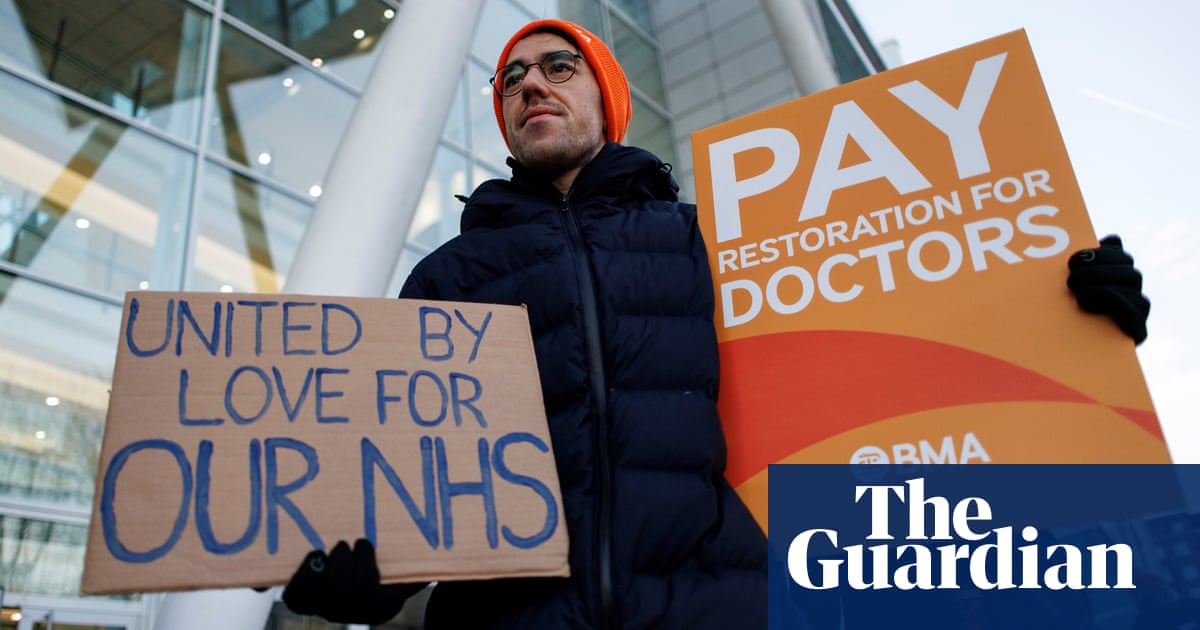
Junior doctors in England are preparing to stage the longest strike in NHS history, with medics due to walk out for six days in an escalation of their bitter row with the government over pay. Here is everything you need to know:
When is the strike action taking place?
Junior doctors will hold their latest round of industrial action from 7am on Wednesday 3 January until 7am on Tuesday 9 January. The previous longest strike was five days, held in July last year.
Why are junior doctors striking?
The strike centres on a long-running pay dispute between the British Medical Association (BMA) and the government. The union says that junior doctors in England have had a 26% real-terms pay cut since 2008 because pay rises have been below inflation.
The BMA has been pushing for junior doctors to get a 35% pay rise, which it says would restore their earnings after inflation to 2008 levels. Ministers say that is unaffordable.
How close are the two sides to ending the row?
Not very. Last summer, the government gave junior doctors in England an average rise of 8.8%, but medics said the increase was not enough and ramped up strike efforts.
Towards the end of the year, the government and junior doctors held talks with a view to breaking the deadlock. But after five weeks negotiations broke down and medics announced more strikes.
Is it only BMA members who are on strike?
No. Junior doctors from the Hospital Consultants and Specialists Association union are also joining colleagues on picket lines from Wednesday 3 January.
What about other doctors?
Consultants and specialty and associate specialist (SAS) doctors have agreed a pay deal with the government, which is now being put to union members.
What impact will the strike action have?
A huge impact. The last strike, which took place just before Christmas, lasted for three days and nearly 90,000 appointments and operations were postponed. NHS officials believe this strike will lead to many more appointments being rescheduled.
A year of industrial action by NHS staff has already forced 1.2m planned appointments – including operations, scans and X-rays – to be delayed, which has cost the NHS about £2bn.
Why is this strike so significant when it only lasts a day longer than the previous longest?
The 144-hour strike is likely to be the most disruptive in the history of the NHS for three reasons. First, it is the longest strike by junior doctors yet, so the number of patients affected is likely to be higher than any previous period of strike action.
Second, junior doctors have chosen to take action almost immediately after a bank holiday and the Christmas period, which usually cause disruption to the NHS.
Third, the strike is taking place in January, in which NHS officials typically expect the most severe winter pressures.
What has the NHS said?
The health service says emergency care will be prioritised during the strike action – this includes services such as A&E, critical care, maternity services and neonatal care.
The most senior NHS doctors, consultants and other staff in the NHS who are not on strike will be diverted to cover these areas, which will mean their usual work will not go ahead, so appointments and operations will be postponed.
What should I do if I fall ill in the next six days?
People are advised by the NHS to access the care they need in the usual way – only using 999 and A&E in life-threatening emergencies and using NHS 111 online and other services for non-urgent health needs.
NHS England says pharmacies and GPs will be unaffected, so patients can still get these appointments and health advice.
This article was amended on 3 January 2024 to attribute to NHS England the final reference to pharmacies and GPs. Some junior doctors taking strike action do work in GP practices.




